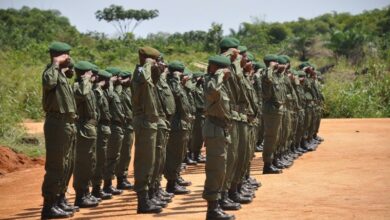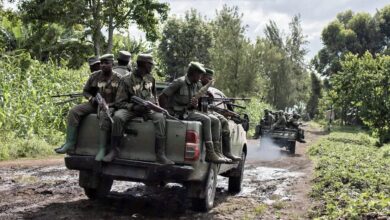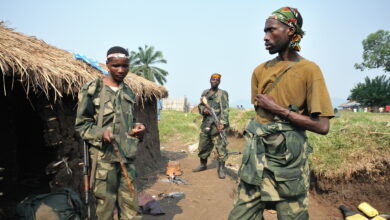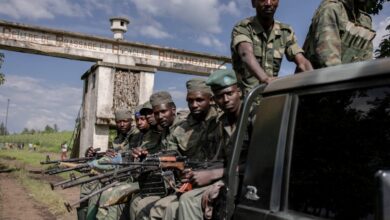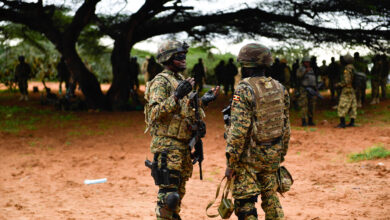DR Congo Says Zambian Troops Occupying Villages Have Withdrawn
Fighting broke out in mid-March between the Zambian and Congolese armies when the Zambian soldiers took control of the villages at Muliro-Kibambe in Tanganyika province.
The Congolese government has announced the withdrawal of Zambian troops who occupied two villages in southeast Democratic Republic of Congo, after regional mediation.
Fighting broke out in mid-March between the Zambian and Congolese armies when the Zambian soldiers took control of the villages at Muliro-Kibambe in Tanganyika province. One soldier was killed on each side.
“On the date of August 4, 2020, our competent services and all Congolese and foreign officials observed the effective retreat of the Zambian troops,” government spokesman David-Jolino Diwampovesa Makelele declared Thursday.
The pullout was made possible by the work of a joint diplomatic mission from the Southern African Development Community (SADC), which visited DR Congo on July 22-29, the spokesman said.
The team effort “led to the recognition by Zambia that the border territories of Kalumbamba and Kibanga, which it had occupied, belonged to DR Congo,” he added. “This was the result of a misunderstanding.”
“At this time, the Congolese population concerned is jubilant, particularly in Muliro. People are starting to move back on to the territories formerly occupied by the Zambian army,” the minister added.
The joint commission sent by the 16-nation SADC ordered the installation of temporary border posts while waiting for the manufacture of permanent and durable markers, Makelele said.
A treaty signed in 1989 by DR Congo and Zambia resolved a dispute inherited from the colonial era concerning the delimitation of land and lake borders between Lake Mweru and Lake Tanganyika, a distance of about 200 kilometers (125 miles).
Border clashes broke out nonetheless between the Zambian and Congolese armies in 1996, in 2006, and in September 2016. The disputed area is easily accessible from the Zambian side, but on the Congolese side, access is made difficult by a swamp.




